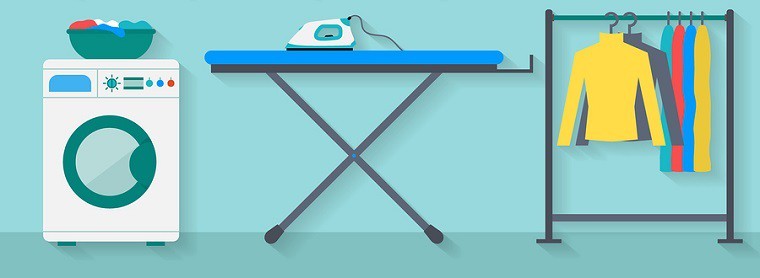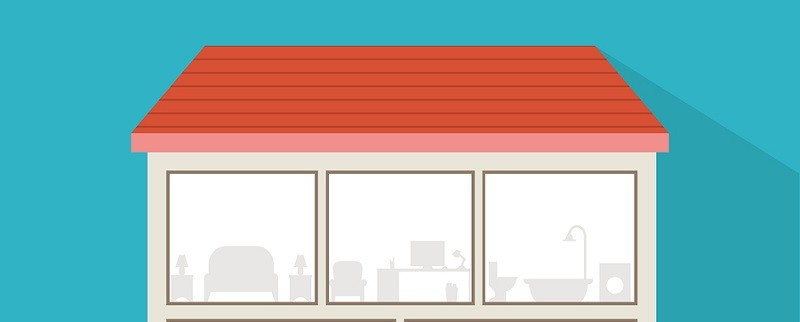Let’s both agree about something:
Saving money is Important!
It’s always a good choice to save more and be able to spend later for stuff you really need (not junk).
You know… Stuff like:
Education, investments, a house, your children and yes…
…Your Medical Future.
The sad truth is, you don’t know if anything is going to happen to you and what the money will do for you in the future, be it a disease or an accident or maybe to someone else close to you (wife, husband, child, etc…)
It can even be something else you can’t imagine right now: being charged with a crime you didn’t commit, a fraud costing you a big chunk of your money, being fired from work and so on.
What’s the bottom line?
You need to save money.
So… without further introduction, let’s dive right in to some money saving tips & tricks.
1. If You’re a Smoker – Sorry But… Time to Quit!
This is not a medical article and I’m not here to “give you a talking to” but really – it’s not good for you. And for your pocket? It’s not so good either.
The average person smokes 10 cigarettes a day and pays for that $1,652 a year.
2. Get yourself a pen and paper, you need to write a shopping list – and stick with it.
Yeah, I know you “just” want that little treat you saw in the supermarket, but it’s not worth it. And if you wrote on your list all you need before you left the house – then you don’t need it either.
So deal with it.
Just deal with it.

3. Now… Let’s Get Cooking!
I don’t have to tell you that eating out isn’t cheap, you’ll be amazed at the difference you can make by eating your own food.
Buy food and cook it. It’s that simple, and with the internet in everything around us finding recipes is easy as counting to 10.
By eating your own home cooked foods you are not only saving money, but you gain control of the things you eat.
Eating out is not healthy. It’s tasty because it has a lot of sugar, salt, fat and other stuff that is just not healthy for us in HUGE amounts which fast food restaurants usually use.
4. Coins – Their Not Worthless
Let me take a quick guess here:
You buy something for $9.50 with a $10 bill and you get your change, then what you do is throw it in your wallet and probably spend it later on stuff you don’t really need.
Well… let me offer an alternative:
Keep a piggy bank in your house. It could be an old jar, an old shoe box, a bowl, etc…
This will not only gather with time to a sweet amount you can actually buy something useful with, but your wallet will be lighter to carry (as coins tend to add up and make your wallet uncomfortable).
More than that, you will not be tempted to buy cheap things you don’t really need if you don’t have quick cash on you and so it will help you save money in the long run.

5. Light Bulbs – a Good Idea
Light bulbs can help you save on your electricity bill with literally a click of a button.
Here’s the deal:
There are 2 things you need to do in order to save more with light bulbs.
A. Turn them off as much as you can.
If you leave the room, if you’re going out of the house, or for any other reason you don’t need the light – turn it off.
B. Buy cost-effective light bulbs, like LED.
LED bulbs use around 1/3rd to 1/30th of the electricity compared to other bulbs tested.
Now that’s huge savings in the long run as electric lighting is responsible for 25% of the average home energy budget.
6. Make a switch to water
Soft drinks are overall expensive if you compare them to your water solution.
So try and drink more water – it’s better for your body and you will save much more this way.
It is also recommended to carry a bottle of water in your bag, that way you won’t need to buy drinks from overpriced stores.
7. I want coffee – for less
I know.
You want to buy coffee outside every morning because it’s the best coffee and you cannot make the same tasty coffee yourself.
Well, that’s tough luck then…
The average American spends $16 a week for coffee on his way to work.
Multiply this by 52 weeks in a year and you spend 16X52= $832 a year on coffee!

8. Reduce fuel costs in your car
You might be wondering:
“My car fuel consumption doesn’t just change – So… What can I do to make my car more cost effective?”
No worries.
Just follow these 3 simple steps…
A. Drive Slower
Driving at 55 mph instead of 75 mph can save between 20-25% of the fuel used for the same driving distance.
B. Fill up your tires
Inflated tires can increase fuel efficiency by 2-5%, so remember – follow the manufacturer instructions for your car’s tires – it’s also safer.
C. Don’t load the car if you don’t have to
Your car use more fuel (more energy) to move when it’s heavier, so don’t overload your trunk or the back seat with stuff you don’t need there. on average, an extra 100 pounds will make your car use 2% more fuel.
9. Be in control
Keep the receipts from your supermarket for a week.
Now:
Add them all up and use this number as your average weekly shopping spend.
After that, look at the number and try to decide on a lower budget for future weeks.
Let’s take an example:
You calculated the amount and the sum was $125, now try to set a budget for $115 and go once a week to the supermarket. You will save this way 10X52 = $520 a year.
10. Call your supplier – it’s time for a discount!
This is a well-known trick for saving money although I felt it needed to be said.
This can be done for everything you pay a company on a regular basis that you have other alternatives from their competitors.
A few examples are:
- Cellphone.
- Car Insurance.
- Cable.
- Internet Provider.
- Telephone.
Here’s the deal:
You call up the company you pay and say something like this:
“Hello, I just called (one of their competitors) and asked how much will it cost to move to use their services and they gave me a better offer as it’s $10 less than what I pay you, so please discontinue your services to me as I would rather use their services as it’s cheaper”.
Your call will immediately move to first priority and the representative will help you pay less for the services they provide for you as they obviously don’t want you to leave.
Simple, but very effective.

11. Get a grip on your laundry!
There are a few things you can do with your laundry habits to save some significant amount of money.
How?
Try these 3 easy tips:
A. Only do full loads
Your washing machine does not care how much cloths you put in, so just try and maximize every use to get as many clean clothes out of each load.
B. You need less than you think
You need less detergent and fabric softener than the manufacturers like to admit. use 75% of each cup instead of filling it to 100%.
You will see the clothes will come out exactly the same and you will save 25% for each load, this will add up over time.
A. Who said you need hot water?
Cleaning in hot water is great to melt fat – that’s good if you got some clothes with stains on them but most of your loads can easily be done using cold water, that way your washing machine doesn’t need to heat up water – this is a huge saver on electricity.
12. Clean some stuff out – and earn while doing so
I bet you can find some things you don’t use anymore and will never use again, everyone has some unused stuff around the house.
A few examples include:
- Electronic Devices – Cellphone, TV, DVD Player, Laptop, etc.
- Clothes – Do you honestly need everything in the closet?
- Games & Hobbies – Toys, Consoles, Instruments, Bikes, Paintings, etc.
- Furniture – 62% of the American households have at least one unused piece of furniture.
So stop being a warehouse for so much unused stuff, take action.
What to do?
Sell!
Here are some ideas to get you started:
- Sell Online – Websites like eBay and Craigslist are a good place to start.
- Yard Sale – Arrange a sale at home – don’t forget to advertise this a bit before so people actually show up.
- Social Media Groups – There are many pages on Facebook and other social media dedicated for people to advertise stuff they want to sell.

13. Having a baby – and surviving the financial costs
Babies are expensive.
There are many expenses which you will just have to pay for, like: food, diapers, beds, strollers, clothes, and car sits to name a few.
But there are still some ways you can save some money during the process.
Here’s 2 of them:
A. Babysitting swaps
Get a good relationship with some couples who are going through the process of having children themselves and help each other.
You can decide on a deal when every time you babysit they repay you back with the same for your child when you need it, or you can just wing it. In any case – this will help save A LOT of money on babysitters.
B. Buy second hand
There are many things which you only need to buy once for the long run, and after you’re done using them they are completely useless to you.
Stuff like: stroller, car seat, crib, bed, etc.
You can look for second-hand deals on the internet and easily get a better price than you would’ve paid if you were buying the same at your local store.
14. Prescription and Over-the-Counter Drugs
Medical bills of any kind can be big, but with drugs, there is always a chance to save.
Here’s How:
A. Lose the brand
A drug is a drug – no matter what company makes it.
You can ask your doctor if there’s a cheaper generic drug he can prescribe, it can cost significantly less than your branded drug – and be exactly the same.
B. Find the cheapest place to buy
If you but the same product – it really doesn’t matter where you get it from.
Try looking at a few pharmacies and compare prices, another good idea for non-prescription drugs is to look online and order, Amazon is a good place to start.
15. Psychology works – we are human after all
There are some things you can say to yourself in order to save money.
Want to know the best part?
They’re really easy to implement in your life.
You can start with any of these:
- Ask Yourself – Do you really need it? Think about it for 10 seconds before you actually buy it at the store. Would you use it? Is it necessary? If so, go ahead and buy.
- Get Perspective – Think about what you are buying and how much it costs if you buy a sweater, and it costs $60 and you earn $15 an hour, ask yourself, is this sweater really worth 4 hours of hard work?
- Do Some Research – Before you buy something, compare prices with other stores and get the best deal, you can always check online for the item and see the price range for it. Don’t rush to buy because you are anxious.

16. Get a good housing solution (and stay there)
Real estate can be tricky sometimes.
What can you do about it?
Be sure to follow these guidelines:
A. Don’t buy bigger than you actually need
A big house is nice, don’t get me wrong. But if you have no use for it than you can save a lot.
Go for the lowest squared feet house you can live comfortably in, you will pay less in many ways.
B. Try to live as close as you can to work
This can save you a ton of transportation costs and a lot of time too!
Don’t you prefer to wake up later and get home sooner? Think about it before you buy a house.
C. Buy – Don’t rent
Buying a house instead of renting is obviously cheaper in the long run, you better get this done as soon as you can because you also want to finish with the house loan as soon as possible.
17. Debts are a big no-no
Did you ever think why banks are such a successful businesses?
They invest, in you.
Every time you take a loan or getting behind on your bills the bank takes fees from you.
So, if you have debts, for now, don’t think how you can invest but think how you can return the debts as soon as you can.
With every month going by you are paying more and more money to the bank.
Getting rid of the debt should be your first priority.
Quick Tip Before We Wrap It Up
Tracking your savings can give you a lot of motivation to keep at it.
It will also help you keep track and know better where you are, financially.
We’ve made a spreadsheet to help you keep track of your savings:
![]() Download Savings Tracker Spreadsheet
Download Savings Tracker Spreadsheet
Now it’s Your Turn
You’ve just seen 17 of my favorite money-saving tips & tricks.
Now it’s time to put these into action.
The first step?
Choose the tips most relevant to you and implement them into your daily life.
It’s easier than you might think.




I like how you write. you got nice writing style.
I learned here a thing or two and really liked the psychology tip.
would try to make it a daily habit.
Thanks!
I’m glad you enjoyed it Mike!
Let me know how it goes.